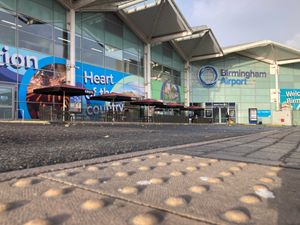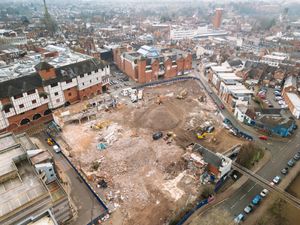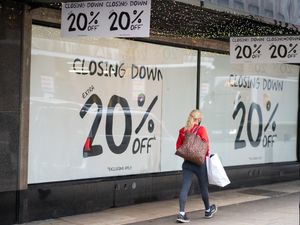Tarmac celebrates 120 years
One of the most famous names associated with Wolverhampton is celebrating 120 years.
Tarmac had its headquarters in Wolverhampton at Millfield Road, Ettingshall for more than a century.
Monday marked 120 years since Tarmac’s original founder Edgar Hooley first perfected how to make road surfaces stick.
Originally founded as the Tarmacadam Patent Syndicate Limited in 1903, Tarmac quickly became synonymous with roads and supported the national effort in both the first and second world wars where it helped prepare for the D-Day landings, before building the UK’s very first motorway, the Preston Bypass, in 1958.
The business diversified into construction in the 1920s and has since been involved with some of the UK’s most complex and iconic projects including the Wembley Stadium, Heathrow Terminal 5, The Shard, London 2012 and Silverstone resurfacing.
Welsh inventor Mr Hooley's company was bought out by then Wolverhampton MP Sir Alfred Hickman an relaunched in 1905
Tarmac, known today as the UK's leading sustainable building materials and construction solutions business, provides the materials used to build houses, workplaces, schools, hospitals, flood defences, roads, bridges and tunnels. Many other everyday essentials – from paper and glass to drinking water, food, cosmetics, pharmaceuticals and toothpaste – continue to be manufactured using Tarmac products.
The Tarmac Group demerged in 1999 with the creation of the former Carillion construction and support services group.
Tarmac continued as two businesses Tarmac Ltd and Tarmac Building Products with its headquarters in Derbyshire.
Owner Anglo American later agreed a joint venture with French concrete business Lafarge. Lafarge Tarmac, which moved the headquarters to Solihull, was bought by CRH in 2015 and the company reverted its name to Tarmac.
There is still a Tarmac concrete plant at Millfields Road.
Now as the company celebrates its 120th anniversary, its team of around 6,000 people across 350 sites is also focused on creating the next generation of innovative, sustainable construction materials to support net zero and tackle climate change. It is also ensuring the land the business works on continues to be operated efficiently and at the end of its construction phase is not only restored but regenerated, creating a positive, lasting legacy.
Tarmac was the first to pioneer and launch warm mix asphalt in 2014, which reduces carbon emissions and can be laid quicker to reduce roadworks for the travelling public. As part of its transition to net zero, it also became the first to purchase and operate a battery electric concrete mixer truck and currently transports millions of tonnes of materials across the UK by rail freight each year.
Celebrating the 120-year milestone, Bevan Browne, managing director for UK materials at Tarmac, said: “From the day that Edgar Hooley first patented Tarmac, our business has been synonymous with innovation and part of the fabric of everyday life. Hooley’s innovative spirit is embedded at the heart of our business and we’re constantly identifying ways of delivering construction and infrastructure for a net zero world.
“While our business is constantly looking forward, we’re incredibly proud of our British heritage, so it’s fitting that we celebrate the achievements of our current and former colleagues as well as the great work with clients and partners, past and present."
Tarmac will be sharing memories from the business’ rich histor for the next few weeks, across its X (twitter, @TarmacLtd), Facebook (@TarmacLtd), LinkedIn (@Tarmac) channels and website. Activity will include stories from colleagues past and present, including some of Tarmac’s longest servers, and employees with a Tarmac family tree, along with photos of key milestones and from sites over the years.
Tarmac today combines the knowledge and expertise of Tarmac, the pioneers of the modern asphalt road, and Blue Circle, the company that patented Portland Cement.





